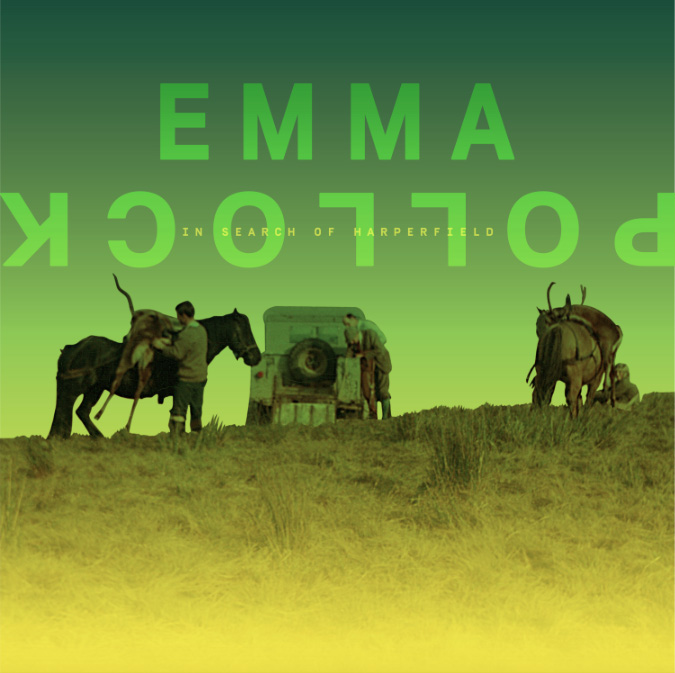It’s difficult to believe it’s been more than five years since Emma Pollock’s last solo release, given her seeming omnipresence as a lynchpin of Scottish indie music. But despite the interval separating 2010’s The Law Of Large Numbers and new record In Search Of Harperfield, she can hardly be accused of indolence. Between her work with the influential Chemikal Underground Records, which this year turns 21, an increasing presence at the thriving Chem 19 studios, and the declining health of her parents, life has been hectic and sometimes hard.
There’s a clear current that flows through Pollock’s latest offering, her third solo record following the end of her days co-fronting treasured but underrated indie pop entity The Delgados. In Search Of Harperfield tries to make sense of ever-evolving life, exploring family secrets, ageing, death and role reversal. It seeks to understand love and loss – it is the sound of the sadness of time passing wrapped up in the sweetest soundtrack. The songs examine the history that pulses through familial veins, each chapter consolidating the singer’s well established ability to encase flawless storytelling in enchanting melodies and razor sharp stanzas.
The opening scenes are set through ‘Cannot Keep A Secret’ with its sorrowful lament, stormy piano turbulence, uncertain confessionals, the ebb and flow of wave-crashing crescendos, before the sassy punch of ‘Don’t Make Me Wait’, which switches between jagged, Elastica-esque riffs and seraphic vocal refrains carried on dreamy strings.
‘Alabaster’ has an ominous tincture – sinister synths and creeping self-doubt, elegiac strings and thudding, building beats. "These little secrets do betray you see, written in the creases of the smile you flash at me," she sings with a sense of menace. Lyrically, this album is Pollock’s most accomplished work, with a cohesive thread throughout. Her elegant vocals are given the appropriate centre stage reverence, thanks in part to the talents of her husband and producer Paul Savage.
An array of strings are used to full effect, most notably on stripped back grief-waltz ‘Intermission’, a harrowing dance with death inspired by a time when Pollock’s parents were both gravely ill. "With quiet upheaval the usual routine is replaced with the noise of a thousand machines/All telling the stories of things that go wrong when we’re pushing the years ’cause we want to hang on." It was written as she drove between her mother and father, to visit and care for them in separate places, a beautiful day outside to spite her sorrow: "The sun follows me home, I guess it must know."
By contrast, the impish reverie of first single ‘Parks And Recreation’ pieces together childhood snapshots through punchy unadulterated pop, before the juxtaposition of the spiky riffs and toe-tapping alt-country chorus that power ‘Vacant Stare’. Lonely keys and stark electro drum beats introduce album closer ‘Old Ghosts’, and Pollock sounds resigned: "Please don’t make a fuss/The years just took their toll on us". It swells and fades with an unresolved finality.
Despite the plaintive undercurrent, In Search Of Harperfield is nothing short of wonderful. From The Velvet Underground guitar licks that pepper ‘In The Company Of The Damned’, the acoustic reflection of ‘Dark Skies’, to the unmistakable strums and plucks of RM Hubbert (‘Monster In The Pack’), it is a truly beautiful record that proves Pollock’s artistic relevance now more than ever.


